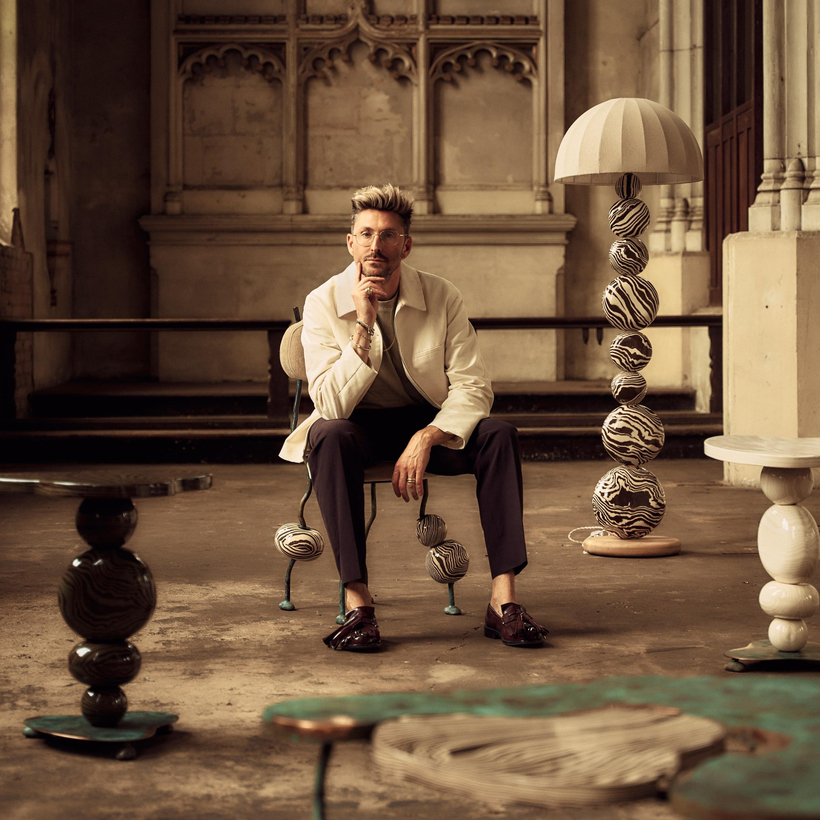Henry Holland is not the first fashion designer who’s been tempted to give it all up and throw pots—but he is the most successful.
Today, he builds marbleized espresso mugs and gingham planters out of his studio in Hackney, London, where his twin kilns (which he’s named Janice and Stanley) are firing on all cylinders. His kitchen items are always on the verge of selling out, but larger works—earthenware-framed mirrors, bobbin lamps, and, most recently, coffee tables and chairs that incorporate patinated bronze and mohair—can always be commissioned for those willing to wait. (Current lead times are running six to eight weeks. Sorry.)


